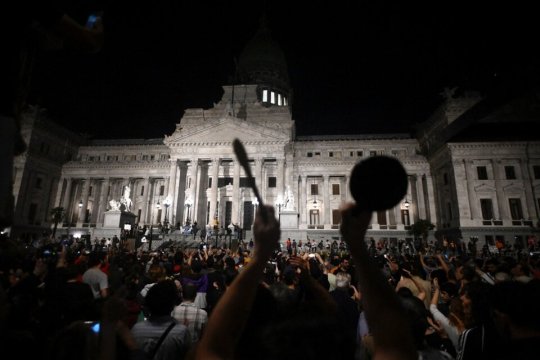#Government pensions and social security
Text
BlackRock CEO Larry Fink says 65 retirement age is too low. Here's what experts say
BlackRock CEO Larry Fink speaks during the New York Times DealBook Summit Nov. 30, 2022 in New York City.
Michael M. Santiago | Getty Images News | Getty Images
“But I do think it’s a bit crazy that our anchor idea for the right retirement age — 65 years old — originates from the time of the Ottoman Empire,” wrote Fink, who is 71.
Republicans have touted raising the retirement age.
Former…
View On WordPress
#401k plans#business news#Elder care#Government pensions and social security#Health Care Costs#Medicare Health Plans#personal finance#Personal income#Personal investing#Personal saving#Personal spending#Retiree finances#Retirees#Retirement Planning#Social Security#U.S. Social Security Administration
0 notes
Text
Missouri man admits 26-year Social Security fraud
Missouri man admits 26-year Social Security fraud
ST. LOUIS — An eastern Missouri man has admitted that he stole almost $200,000 by collecting his mother’s Social Security benefits for 26 years after her death.
Reginald Bagley, 62, of Dellwood, pleaded guilty Thursday to a felony charge of stealing money belonging to the United States, the U.S. Attorney’s Office in Eastern Missouri said in a news release.
Bagley did not report his mother’s death…
View On WordPress
#Business#Crime#Fraud and false statements#General news#Government and politics#Government business and finance#Government pensions and social security#Government programs#Government-funded health insurance#Medicare#Theft#United States governme
0 notes
Text
#Atal Pension Yojana#Pension Scheme#Financial Security#Unorganized Sector#Retirement Planning#Social Security#Government Scheme#Old Age Pension#Financial Inclusion
0 notes
Text
खुशखबरी! राज्यकर्मियों को पुरानी पेंशन की सौगात 15 अगस्त तक : मुख्यमंत्री हेमंत सोरेन
खुशखबरी! राज्यकर्मियों को पुरानी पेंशन की सौगात 15 अगस्त तक : मुख्यमंत्री हेमंत सोरेन
Old Pension Scheme : झारखंड के मुख्यमंत्री हेमंत सोरेन राज्य कर्मचारियों को पुरानी पेंशन देने का ऐलान किया है। उन्होंने कहा कि 15 अगस्त तक पुरानी पेंशन बहाल कर दी जाएगी। इससे राज्य के हजारों कर्मचा .
Source link
View On WordPress
#15 august 2022#15 अगस्त 2022#Central Employees#chief minister Hemant Soren#demand of employees#Good News#Hindi News#Hindustan#News in Hindi#old pension#old pension scheme#Pension#pension to government employees#social security#state employees#ओल्ड पेंशन स्कीम#कर्मचारियों की मांग#केंद्रीय कर्मचारी#खुशखबरी#पुरानी पेंशन#पेंशन#मुख्यमंत्री हेमंत सोरेन#राज्य कर्मचारी#सरकारी कर्मचारियों को पेंशन#सामाजिक सुरक्षा#हिन्दुस्तान
0 notes
Text
Jan Suraksha schemes bring insurance, pension accessible to common man: FM

Finance Minister Nirmala Sitharaman on Monday said the three Jan Suraksha schemes -- Pradhan Mantri Jeevan Jyoti Bima Yojana, Pradhan Mantri Suraksha Bima Yojana and Atal Pension Yojana -- have brought insurance and pension within the reach of the common man.
The number of people who have enrolled and benefitted from the above schemes over the last seven years is a testimony to their success, she said on the occasion of 7th anniversary of the launch of the three social security schemes.
These schemes were launched by Prime Minister Narendra Modi on May 9, 2015.
Under PMJJBY, a cumulative number of 12.76 crore persons have enrolled since inception for life cover and families of 5,76,121 persons have received claims for Rs 11,522 crore under the scheme. The scheme has proved extremely useful for low-income households during pandemic as in FY21, almost 50 per cent claims paid out were due to COVID-19 deaths," she said.
Read more
#Social security in India#Government of India#Economy of India#India#Insurance in India#Pradhan Mantri Suraksha Bima Yojana#Atal Pension Yojana#Pradhan Mantri Jeevan Jyoti Bima Yojana#Atal Bhujal Yojana
0 notes
Text









"Cacerolazos" Spontaneous protests in Argentina after the decree announced by President Milei that cuts rights and makes the economy more flexible, allowing a transfer of wealth from the working class to concentrated capital, in the context of a very serious income crisis for the middle and lower sectors. The decree is illegal and undemocratic.
It happens on another anniversary of the social outbreak of 2001 in the midst of the worst economic crisis in our history. Those responsible for the 2001 crises now constitute the Milei government: Patricia Bullrich, who was minister of social security in 2001 and who cut 13% of pension for retirees, is now minister of security with an anti-protest protocol that is unconstitutional for not guaranteeing constitutional rights of protest and freedom of expression. Federico Sturzenegger, secretary of economic policies in 2001, advisor and main person responsible for the design of the decree that repeals and modifies more than 300 laws announced yesterday by Milei.
#argentina#milei#please share#the international right wing is looking argentina like a laboratory to test this insane transference of wealth from working class to rich#its important to show that people in argentina is suffering and resisting
412 notes
·
View notes
Text
Okay I'm riled up about this rn so time for a history of economics lesson (rant) from me, a stranger on the internet
I'm a communist, I hate capitlism, so lemme just put that out there. But capitlism had its moments. Even marx had some praise for parts of capitlism.
And by far the most successful form of capitlism was Keynesian economics, as evident by the enormous increase in living standards in those countries which adopted it between the 1930s and 1970s.
What's Keynesian economics? The idea that capitlism can't survive on its own, and must be supported by government spending at the poorest ends of society and taxes at the richest ends of society (essentially the opposite of trickle down economics) as well as strong regulations on certain industries like banking.
It basically started in 1936 with President Roosevelt who was a personal friend of John Keynes (who the theory is named after).
Roosevelt implemented Keynesian economics to great effect; he raised the top tax rate to 94% (he actually wanted a 100% tax rate on the highest incomes, essentially creating a maximum wage, but the senate negotiated down to 94%) and similarly high corporate tax rates, he created the first ever minimum wage, created the first ever unemployment benefit, created social security in America, pension funds, and increased public spending on things like public utilities and infrastructure, national parks, etc. Which created about 15 million public sector jobs.
This ended the great depression and eventually lead to America winning world War 2, after which many countries followed suit in implementing similar policies, including UK, Australia, and NZ (apologies for the anglosphere-centric list here but they're the countries I'm personally most familiar with so bare with me)
Over the next 40 years these countries had unprecedented growth in living standards and incomes, and either decreasing or stable wealth inequality, and housing prices increasing in line with inflation. Virtually every household bought a car and a TV, rates of higher education increased dramatically, america put a man on the moon, and so on.
Then it all abruptly ended in the 80s and the answer is plain and obvious. 1979 thatcher became UK prime minister. 1981 reagan became US president. 1983 the wage accords were signed in aus. 1984 was the start of rogernomics in NZ (Someone link that Twitter thread of the guy who posts graphs of economic trends and points out where reagan became president)
(Also worth noting those last two in NZ and Aus were both implemented by 'left' leaning governments, but they are both heavily associated with right wing policies.)
This marked the beginning of trickle down economics: tax cuts, privatization of publicly owned assets, reduction in public spending, and deregulation of the finance sector. The top tax rates are down to the low 30s in most of these countries, down from the 80s/90s it was prior. Now THATS a tax cut.
And what happened next?
Wages stagnated. Housing prices skyrocketed. Bankers got away with gambling on the economy. Public infrastruce and utilies degraded. And wealth inequality now exceeds France in 1791.
I don't know how anyone can deny the evidence if they see it, but there's so much propaganda and false information that a lot of people just don't see the evidence.
Literally all the evidence supports going back to Keynesian economics but now that the rich have accumulated so much wealth it's virtually impossible to democratically dethrone them when they have most of the politicians on both the right and the left in their pocket.
Unfortunately it was the great depression and ww2 that gave politicians the political power to implement these policies the first time around. Some thought the 2008 crash would spur movement back towards Keynesianism (which it actually did in Iceland, congrats to them), I hoped covid would force governments to now, but nope.
All these recent crises' seem to have just pushed politics further and further right, with more austerity and tax cuts.
I don't really have a message or statement to end on other than shits fucked yo.
#also this is purely talking about the economics side of things#i know pre-80s the social side of politics was fucked despite the increasing living standards#with jim crow laws ans segregation and countless anti-queer laws etc.#and i know you canr seperate the economy entirely from social aspects of politics#but for the purposes of this post this is about the theoretical implications of different forms of capitlism#thats also why im not mentioning the recent descent towards fascism even tho it is closely tied to the economy#anyway#so yeah ive been reading a lot on economics lately#capitlism#economy#Keynesian economics#communism
5K notes
·
View notes
Text
In other news, this week a French publisher on his way to the London Book Fair was arrested by British counter-terrorist police to be questioned about his participation in protests in France.

A French publisher has been arrested on terror charges in London after being questioned by UK police about participating in anti-government protests in France.
Moret arrived at St Pancras [...] with his colleague Stella Magliani-Belkacem, the editorial director at the Paris-based publishing house, to be confronted by the two officers. [...] He was questioned for six hours and then arrested for alleged obstruction in refusing to disclose the passcodes to his phone and computer. [...] He was transferred to a police station in Islington, north London, where he remained in custody on Tuesday. He was later released on bail.
Éditions la Fabrique is known for publishing radical left authors. Moret also represents the French science fiction novelist Alain Damasio and had arranged more than 40 appointments at the London book fair. [...]
[Quoting publishing house’s press release] “The police officers claimed that Ernest had participated in demonstrations in France as a justification for this act – a quite remarkably inappropriate statement for a British police officer to make, and which seems to clearly indicate complicity between French and British authorities on this matter.” [...] “There’s been an increasingly repressive approach by the French government to the demonstrations, both in terms of police violence, but also in terms of a security clampdown.”
(Guardian link - BBC link) (article in French)
The publishing house (here’s their latest statement in French) and the publisher’s lawyer mention that the British police asked him “Do you support Emmanuel Macron? Did you attend protests against the pension reform?” and he was also asked to name the authors with anti-government views that his employer has published. They add, “Asking the representative of a publishing house, in the framework of counter-terrorism, about the opinions of his authors, is pushing even further the logic of political censorship and repression of dissenting thought. In a context of social protests and authoritarian escalation on the part of the French government, this aspect [of the questioning] is chilling.”
Being an accomplice to thoughtcrime by publishing dissident authors gets you treated like an international terrorist now... The publisher’s lawyer suggests that French authorities asked the UK to help them get their hands on the publisher’s contacts in the radical left sphere. But on the face of it, we’ve got: Exercise your right to protest your government in France -> get arrested by counter-terrorist UK police in London. That’s literally the reason he was given for being greeted by police at the train station...


#frpol#i bought a couple of books from la fabrique this morning... win-win i actually meant to read them and didn't know they were#published by them#in slightly better news @french people if you haven't seen some video excerpts of macron meeting alsatians today it's worth checking out#people telling him how corrupt his gov is; someone saying ''you're going to fall; mark my words'' and someone else#''we don't want your reform you arsehole'' and people chanting 'macron resign' as he walks away looking a bit pissed...#and naturally protests were banned in the cities he visited today and cops had cleared the area of actual protesters#before macron arrived so the people he met were actually the less angry people
993 notes
·
View notes
Note
I'm writing a sci-fi story about a space freight hauler with a heavy focus on the economy.
Any tips for writing a complex fictional economy and all of it's intricacies and inner-workings?
Constructing a Fictional Economy
The economy is all about: How is the limited financial/natural/human resources distributed between various parties?
So, the most important question you should be able to answer are:
Who are the "have"s and "have-not"s?
What's "expensive" and what's "commonplace"?
What are the rules(laws, taxes, trade) of this game?
Building Blocks of the Economic System
Type of economic system. Even if your fictional economy is made up, it will need to be based on the existing systems: capitalism, socialism, mixed economies, feudalism, barter, etc.
Currency and monetary systems: the currency can be in various forms like gols, silver, digital, fiat, other commodity, etc. Estalish a central bank (or equivalent) responsible for monetary policy
Exchange rates
Inflation
Domestic and International trade: Trade policies and treaties. Transportation, communication infrastructure
Labour and employment: labor force trends, employment opportunities, workers rights. Consider the role of education, training and skill development in the labour market
The government's role: Fiscal policy(tax rate?), market regulation, social welfare, pension plans, etc.
Impact of Technology: Examine the role of tech in productivity, automation and job displacement. How does the digital economy and e-commerce shape the world?
Economic history: what are some historical events (like The Great Depresion and the 2008 Housing Crisis) that left lasting impacts on the psychologial workings of your economy?
For a comprehensive economic system, you'll need to consider ideally all of the above. However, depending on the characteristics of your country, you will need to concentrate on some more than others. i.e. a country heavily dependent on exports will care a lot more about the exchange rate and how to keep it stable.
For Fantasy Economies:
Social status: The haves and have-nots in fantasy world will be much more clear-cut, often with little room for movement up and down the socioeconoic ladder.
Scaricity. What is a resource that is hard to come by?
Geographical Characteristics: The setting will play a huge role in deciding what your country has and doesn't. Mountains and seas will determine time and cost of trade. Climatic conditions will determine shelf life of food items.
Impact of Magic: Magic can determine the cost of obtaining certain commodities. How does teleportation magic impact trade?
For Sci-Fi Economies Related to Space Exploration
Thankfully, space exploitation is slowly becoming a reality, we can now identify the factors we'll need to consider:
Economics of space waste: How large is the space waste problem? Is it recycled or resold? Any regulations about disposing of space wste?
New Energy: Is there any new clean energy? Is energy scarce?
Investors: Who/which country are the giants of space travel?
Ownership: Who "owns" space? How do you draw the borders between territories in space?
New class of workers: How are people working in space treated? Skilled or unskilled?
Relationship between space and Earth: Are resources mined in space and brought back to Earth, or is there a plan to live in space permanently?
What are some new professional niches?
What's the military implication of space exploitation? What new weapons, networks and spying techniques?
Also, consider:
Impact of space travel on food security, gender equality, racial equality
Impact of space travel on education.
Impact of space travel on the entertainment industry. Perhaps shooting monters in space isn't just a virtual thing anymore?
What are some indsutries that decline due to space travel?
I suggest reading up the Economic Impact Report from NASA, and futuristic reports from business consultants like McKinsey.
If space exploitation is a relatiely new technology that not everyone has access to, the workings of the economy will be skewed to benefit large investors and tech giants. As more regulations appear and prices go down, it will be further be integrated into the various industries, eventually becoming a new style of living.
#writing practice#writing#writers and poets#creative writing#writers on tumblr#creative writers#helping writers#poets and writers#writeblr#resources for writers#let's write#writing process#writing prompt#writing community#writing inspiration#writing tips#writing advice#on writing#writer#writerscommunity#writer on tumblr#writer stuff#writer things#writer problems#writer community#writblr#science fiction#fiction#novel#worldbuilding
167 notes
·
View notes
Note
On the subject of UBI, I always ask about the MCU UBI: Tony is a billionaire who lives a life of luxury, Bruce has a serious chronic illness that requires expensive medical care, and Trevor just wants to sit round all day drinking and doing drugs. I take the UBI guys more seriously if they can say what each man gets from a UBI.
That's a somewhat odd choice of characters to think about how a UBI would function in the MCU.
So yes, Tony Stark would get a UBI. Relative to his private income, his UBI check would be totally inconsequential - and given the level of taxation needed to support a UBI, it's pretty much guaranteed that Tony would be paying far more in taxes than he would be getting back in UBI payments.
This is not an accident or a mistake or a flaw in the system; this is how a healthy social policy should function. When Social Security was established in 1936, FDR made a big deal of the fact that even John D. Rockefeller would get a Social Security check - because it hammered home the point that everyone contributes, and everyone benefits. Reciprocal solidarity would short-circuit the divisive politics of distribution and redistribution and cement a permanent majority coalition in support of a universal welfare state.

Bruce Banner would also get a UBI check. Now, his financial situation is a little unclear - originally, Banner was a top research scientist at Culver University with U.S military contracts, so he would probably have been in the top 10% of incomes (affluent but not wealthy). After his transformation into the Hulk, however, Bruce was a wanted fugitive with no way of earning income.
After that, Bruce was an Avenger - and this is where things get odd. As established in Falcon and the Winter Soldier, Avengers in the MCU don't get a salary: Tony gave them free housing and paid their Avengers-related expenses, but Sam Wilson notably relied on his veteran's pension and government contracts for his living (thus why his banker could justify turning him down for a small business loan rather than admitting to structural racial discrimination) and Steve Rogers even with his veteran's benefits, Social Security, and SHIELD salary couldn't afford a place in Brooklyn. This means that, while Bruce doesn't need to worry about money for his research and can save on rent, he does actually need the UBI for everything else.
This is very different from in the comics, where Avengers get quite decent salaries:

$4k a month in 1983 dollars works out to around $150k a year (on top of free housing at the Avengers Mansion), putting them solidly in the top 13% of U.S personal incomes.
As for Trevor Slattery, I feel like your description is unfairly characterizing a working actor. Slattery was not a major success in Hollywood - hence why he took Aldrich Killian up on his job offer and became part of a criminal conspiracy - and he does have some serious substance abuse issues, but what he does in his private life is his own business. Hell, even when he was abducted by the Ten Rings, he kept working as an actor. That being said, Trevor is going to have a hard time getting UBI, both because he's a wanted fugitive and convicted felon (which would end his eligibility in the U.S) and because he's now living in a rural village in another dimension.
68 notes
·
View notes
Text
Social security cards are so funny, printed on the flimsiest of paper, created just the perfect size for your wallet, but don't keep it there! Plus if someone gets your secret number on it they can impersonate you and destroy your credit rating. But it's all supposed to be for the government pension that will totally still be around when you need it.
385 notes
·
View notes
Text
My dear lgbt+ kids,
I want to share a petition with you:
"Switzerland currently does not recognize the right to surviving spouse AVS (Social Security) benefits for LGBT+ widows and widowers, while heterosexual widows receive full benefits under the law.
Traditionally, following the death of a husband, a widow is granted a widow's pension. However, the government still denies a widows pension to lesbian widows who meet the same criteria.
Take the case of Beatriz Hernandez, legally married to her Swiss wife for many years before her wife’s unfortunate death (...)
When her wife died in 2015, Beatriz filed for the spousal survivor benefits. The Swiss government, however, denied her the surviving pension on the argument that she could not be a widow because she was married to a woman. (...)
We call on the Swiss Government to recognise the constitutional rights of LGBT+ widows and widowers immediately, by granting and paying out the survivor rights which they have funded and earned as Swiss citizens over a lifetime of contributions.
A widow's pension must be granted regardless of the sexual orientation of a woman who loses her spouse."
Sign here!
With all my love,
Your Tumblr Dad
945 notes
·
View notes
Text
The Nordic model has been characterized as follows:[16]
An elaborate social safety net, in addition to public services such as free education and universal healthcare[16] in a largely tax-funded system.[17]
Strong property rights, contract enforcement and overall ease of doing business.[18]
Public pension plans.[16]
High levels of democracy as seen in the Freedom in the World survey and Democracy Index.[19][20]
Free trade combined with collective risk sharing (welfare social programmes and labour market institutions) which has provided a form of protection against the risks associated with economic openness.[16]
Little product market regulation. Nordic countries rank very high in product market freedom according to OECD rankings.[16]
Low levels of corruption.[19][16] In Transparency International's 2019 Corruption Perceptions Index, Denmark, Finland, Norway and Sweden were ranked among the top 10 least corrupt of the 179 countries evaluated.[21]
A partnership between employers, trade unions and the government, whereby these social partners negotiate the terms to regulating the workplace amongst themselves, rather than the terms being imposed by law.[22][23] Sweden has decentralised wage co-ordination while Finland is ranked the least flexible.[16] The changing economic conditions have given rise to fear among workers as well as resistance by trade unions in regards to reforms.[16]
High trade union density and collective bargaining coverage.[24] In 2019, trade union density was 90.7% in Iceland, 67.0% in Denmark, 65.2% in Sweden, 58.8% in Finland, and 50.4% in Norway; in comparison, trade union density was 16.3% in Germany and 9.9% in the United States.[25] Additionally, in 2018, collective bargaining coverage was 90% in Iceland, 88.8% in Finland (2017), 88% in Sweden, 82% in Denmark, and 69% in Norway; in comparison collective bargaining coverage was 54% in Germany and 11.7% in the United States.[26] The lower union density in Norway is mainly explained by the absence of a Ghent system since 1938. In contrast, Denmark, Finland and Sweden all have union-run unemployment funds.[27]
The Nordic countries received the highest ranking for protecting workers rights on the International Trade Union Confederation 2014 Global Rights Index, with Denmark being the only nation to receive a perfect score.[28]
Sweden at 56.6% of GDP, Denmark at 51.7%, and Finland at 48.6% reflect very high public spending.[29] Public expenditure for health and education is significantly higher in Denmark, Norway, and Sweden in comparison to the OECD average.[30]
Overall tax burdens as a percentage of GDP are high, with Denmark at 45.9% and both Finland and Sweden at 44.1%.[31] The Nordic countries have relatively flat tax rates, meaning that even those with medium and low incomes are taxed at relatively high levels.[32][33]
The United Nations World Happiness Reports show that the happiest nations are concentrated in Northern Europe. The Nordics ranked highest on the metrics of real GDP per capita, healthy life expectancy, having someone to count on, perceived freedom to make life choices, generosity and freedom from corruption.[34] The Nordic countries place in the top 10 of the World Happiness Report 2018, with Finland and Norway taking the top spots.[35]
x
I think a lot of people are missing that the Nordic model is:
generally very friendly to businesses
composed of largely organically set standards (workers rights secured by collective bargaining and trade-unions, not by a centralized authority) (as opposed to a centralized bureaucracy)
Largely structured to provide citizens with benefits that make workforce participation easier. The ordering of the social safety net and welfare state make it relatively easy to upskill and hold a job.
34 notes
·
View notes
Note
Hi!
I'm absolutely LOVING Fine Tuning, and I appreciated your most recent episode, "Shells and Barriers." I think what you're doing is so important and I wish a link to the podcast could be mandatorily stamped on the cover of every copy of Tune In ever sold.
I do have a question that I was hoping you guys would go into in this episode but you didn't. Maybe it would have been too much of a side-track for the podcast and maybe you could answer it here?
What DID they do without her money? I'm not really familiar with british council housing in the fifties, but didn't they have that place in allerton because Mary was a government employee? And didn't she make most of the money? And didn't Jim have a gambling problem?
This is a great question. I know Jim kept working and apparently the Aunties contributed food once a week or so. Obviously Paul contributed to the household once he started making a bit of money with the band, but that wasn't for at least a couple years.
I admit I'm also woefully ignorant of the British social system, especially in the 50s. I assume Mary had some sort of benefits package that would've allowed her dependent children to remain in the council home for free. Did she have (the equivalent of) social security benefits? A pension? Life insurance?
Maybe some of our listeners can help!
Thanks for listening!
27 notes
·
View notes
Text
US America is a bunch of gahddamn pansies. Like what the fuck is this shit?
You know France is like raising hell over pension ages being raised from 62 to 64.
But America don't got pensions anymore, and they stayed silent while we lost that shit. And now they're bitching and moaning as Social Security goes up but they're STILL not doing anything. Fuck they aren't even VOTING.
Like your quiet bitching and moaning ain't gonna do shit as you silently watch them do the very bad thing.
GET MAD! GIVE THEM HELL! LET THEM KNOW HOW WE FEEL.
It's looking like we may not have any social security left by 2035. WHERE'S THE OUTRAGE? MY TAXES ARE GOING INTO THIS SHIT. WHERE THE FUCK MY MONEY GOING WHERE YOU'RE JUST GONNA RUN THE FUCK OUT.
I'm so gahddamn tired of people saying I want free shit for being mad at things like this. I DON'T WANT FREE SHIT. I WANT MY GAHDDAMN TAXES TO ACTUALLY GO TO THE PEOPLE OF THIS GAHDDAMN COUNTRY WHERE I MOTHERFUCKING LIVE. WHERE THE FUCK IS MY MONEY GOING?
AND I PAY ENOUGH IN FUCKING TAXES TO HAVE THE GAHDDAMN RIGHT TO BE MORE THAN A LITTLE UPSET WHEN I SEE THE FUCKING GOVERNMENT WASTING IT.
-fae
90 notes
·
View notes
Text
Podcasting "Ideas Lying Around"

This week on my podcast, I read my recent Medium column, “Ideas Lying Around: Milton Friedman was a monster, but he wasn’t wrong about this,” which I describe a theory of change for unrigging markets, addressing the climate emergency, building worker power and fixing the imbalance between news publishers and Big Tech:
https://doctorow.medium.com/ideas-lying-around-33a28901a7ae
What is this amazing theory of change, that can do so much to right the world’s wrongs? Fittingly, it’s the same theory of change that got us into this mess. It’s Milton Friedman’s theory of change.
Friedman was the archduke of neoliberal economics, the man who led the counter-reformation that destroyed the gains of the New Deal and the Great Society, restored corporate monopolies to primacy over democratically accountable government, gutted labor power, and put the world in the hands of mediocre, narcissistic billionaires who are determined to set it on fire.
We live in Friedman’s world, but it wasn’t always thus. When Friedman set out to restore America’s deposed oligarchs to their Gilded Age thrones, his ideas were incredibly unpopular. The post-war reforms — trustbusting, unions, environmental and labor protections, Social Security, etc — were wildly popular. Year after year, these reforms grew, and the groups who had been excluded from them — women, racialized people, queer people, colonized people — launched liberation movements demanding (and winning) inclusion in this broad prosperity.
Friedman’s financiers and acolytes — plutocrats and the temporarily embarrassed millionaires who aspired to join them in despotic rule — loved Friedman’s vision, but they were naturally skeptical that he could make it into reality. They had been painfully disabused of the notion that their social inferiors were comforted by a life of forelock-tugging servitude:
https://doctorow.medium.com/the-end-of-the-road-to-serfdom-bfad6f3b35a9
How would Friedman convince these sharp-elbowed proles to go back belowstairs and stay there? Friedman had an answer:
Only a crisis — actual or perceived — produces real change. When that crisis occurs, the actions that are taken depend on the ideas that are lying around. That, I believe, is our basic function: to develop alternatives to existing policies, to keep them alive and available until the politically impossible becomes the politically inevitable.
Even the best-run society is subject to exogenous shocks — pandemic, invasion, natural disaster, meteor strike — and in the reeling dislocation of the crisis, people will turn to the loudest, most persistent critics of the failed status quo, desperate for alternatives.
Friedman got his crisis. In 1973, OPEC cut off the global supply of oil, and plunged the world into recession. The source of the recession was obvious: OPEC didn’t keep it a secret. But Friedman and his pals were able to convince the people shivering in the dark that their pain was caused by women’s lib, labor unions, civil rights and the EPA. In the crisis, his ideas moved from the periphery to the center.
Jimmy Carter got the ball rolling, adopting Friedman’s proposals for coddling monopolies and forcing workers out of guaranteed pensions and into the market’s rigged casino, where they would bet their 401(k)s against shrewd stock brokers for the chance of a dignified retirement:
Next came Ronald Reagan, who incinerated whole libraries’ worth of regulations that protected the American people from corporate predators, gutted unions and ripped out society’s steering wheel and brakes and set it rolling towards extinction’s cliff, whose brink we can see growing closer daily:
https://locusmag.com/2022/07/cory-doctorow-the-swerve/
Friedman’s been in hell since 2006, but we live in Friedman’s world. His ideas are firmly rooted in the center, and the ideas that delivered environmental regulation, decent jobs, and progress on gender and racial equality have been banished to the periphery.
But there will be crises. As Stein’s Law goes, “anything that can’t go on forever will eventually stop.” In every domain of human endeavor, we lurch from crisis to crisis: labor, climate, discrimination, corruption. Each of these crises is terrible, and each one is an opportunity for ideas lying around to rush into the center currently occupied by Friedman’s intellectual descendants.
80 years on, Woody Guthrie’s 1943 New Year’s Resolutions are a hell of a read, and not a day goes by that I don’t think of number 19: “Keep hoping machine running.”
https://www.townandcountrymag.com/society/news/a9130/woody-guthrie-resolutions/
My hoping machine runs on the creation and spreading of ideas lying around. Last year, Rebecca Giblin and I published Chokepoint Capitalism: How Big Tech and Big Content Captured Creative Labor Markets and How We’ll Win Them Back:
https://chokepointcapitalism.com/
The first half of the book consists of detailed explanations of the scams that the highly concentrated tech and entertainment sectors use to reduce the income of creative workers, even as their own profits rise to never-seen heights. Readers tell us that by the time they’re reached the book’s midpoint, they hear the dangerous, high-pitched keening that signals an incipient rage aneurysm.
But the second half of the book consists entirely of detailed, shovel-ready, systemic reforms that would make immediate, significant shifts in the pay creative workers get for their labor. None of these are individual solutions: we don’t tell you how to shop better or other consumerist theater. You’re not going to shop your way out of monopoly capitalism — no more than you’re going to recycle your way out of the climate emergency.
These are meant to be ideas lying around — ideas that are more than “let’s just make copyright last longer or cover more works,” which is all we’ve done for 40 years, to disastrous effect. After all, giving an artist more copyright to bargain with five publishers, four studios, three labels, two ad-tech companies or the one ebook/audiobook company is like giving your bullied kid extra lunch money. There isn’t an amount of lunch money that will get that kid lunch. You’ve gotta do something about the bullies. Hence the back half of Chokepoint Capitalism — ideas lying around for unrigging labor markets, to be deployed in a crisis.
On those lines: for the past month, EFF and I have been publishing a series called “Saving the News From Big Tech”:
https://www.eff.org/deeplinks/2023/04/saving-news-big-tech
This series lays out four “ideas lying around” for fixing the real problem with Big Tech’s relationship to the news: stealing money by rigging ads, payments and social media, so that 51% of every ad dollar and 30% of every app-based subscription goes to a tech giant, and news companies have to spend whatever they have left to “boost” their social media posts to reach the subscribers who asked to see their stuff.
News is in (perpetual) crisis, and, as with creative labor markets, the “solution” of first resort is to force tech companies to share their profits with news companies. This makes the news and tech into partners, just at the moment where we’re relying on news to investigate tech and expose its rot. It also favors the largest news companies, which are overwhelmingly either billionaires’ playthings or skeleton-crewed ghost ships owned by private equity looters.
The ideas (lying around) I develop with EFF are designed to prevent tech from reaping its illegitimate profits, making it weaker and making the press stronger, including indie news outlets, from nonprofits to spunky outlets run by laid-off reporters who are determined to bring their readers real news.
Fiction is also a great way to create ideas lying around. My next novel, The Lost Cause, is a science fiction thriller set in a world where the Green New Deal is underway and people are confronting, rather than denying, the scale and urgency of the climate emergency. It’s a novel full of joy, an emotional flythrough of what it would feel like to formulate and execute a plan to save ourselves, rather than hoping that the threat just goes away on its own:
https://us.macmillan.com/books/9781250865939/the-lost-cause
Kim Stanley Robinson describes The Lost Cause thus:
This book looks like our future and feels like our present — it’s an unforgettable vision of what could be. Even a partly good future will require wicked political battles and steadfast solidarity among those fighting for a better world, and here I lived it along with Brooks, Ana Lucía, Phuong, and their comrades in the struggle. Along with the rush of adrenaline I felt a solid surge of hope. May it go like this.
I am a firm believer in the power of ideas lying around, and I admit to feeling a guilty pleasure every time I cite Friedman’s own words. I like to think that whenever he hears his words in my mouth, he looks up from the spit he’s turning on in Hell, and amuses the demons turning the crank by gargling a curse around the red-hot bar protruding from his jaws.
Here’s the podcast episode:
https://craphound.com/news/2023/06/11/ideas-lying-around/
And here’s a direct link to the MP3 (hosting courtesy of the Internet Archive, they’ll host your stuff for free, forever):
https://ia802608.us.archive.org/28/items/Cory_Doctorow_Podcast_445/Cory_Doctorow_Podcast_445_-_Ideas_Lying_Around.mp3
And here’s a link to subscribe to my podcast’s RSS feed:
https://feeds.feedburner.com/doctorow_podcast

If you’d like an essay-formatted version of this post to read or share, here’s a link to it on pluralistic.net, my surveillance-free, ad-free, tracker-free blog:
https://pluralistic.net/2023/06/12/only-a-crisis/#lets-gooooo

[Image ID: A workbench with a pegboard behind it. from the pegboard hang an array of hand-tools.]

Image:
btwashburn (modified)
https://commons.wikimedia.org/wiki/File:Garage_Workbench_-_%281%29.jpg
CC BY 2.0
https://creativecommons.org/licenses/by/2.0/deed.en
#pluralistic#ideas lying around#podcasts#mp3s#audio#saving the news from big tech#theories of change#milton friedman#shock doctrine#chokepoint capitalism#the lost cause
40 notes
·
View notes